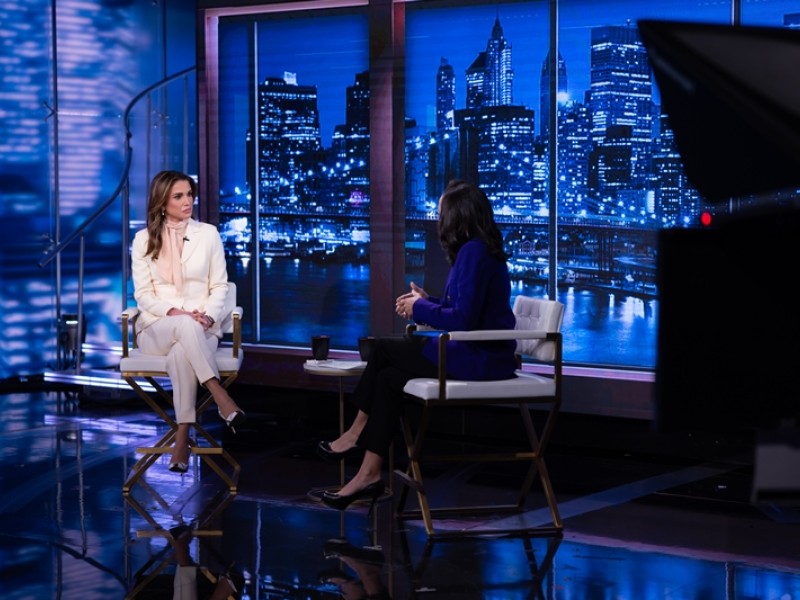In Interview with ABC, Queen Rania Talks about Education in Jordan
Your Majesty thank you for sitting here and talking to us. Being a queen and being a social reformer makes you very unusual. You’ve been an advocate for women and for children’s rights. In the area of children’s rights, children’s education, what are you most proud of?
Queen Rania: I think the thing I’m most proud of is the high, valuable place on children and education. In Jordan we are really focusing on education reform and we’ve been doing so in non-traditional ways. So we’ve gone beyond just access and parity to more innovative tools that involve public and private partner collaboration, really going into our classrooms and upgrading the curricula, improving the training of the teachers, introducing information technology into the classroom and all the while trying to make sure that our children are encouraged to question, to debate, to create, you know, so to really think for themselves. And we are very, very proud of that.
It’s worth noting that you have the highest primary school attendance of any Arab country in the world.
Queen Rania: That’s correct. And this allows us to move beyond just focusing on access to education, to really excel in education and lifting the standards up much higher.
You have said that girls should be able to have the same dreams and the same aspirations as boys in the country. That may not sound radical to western ears, but at home, that’s controversial.
Queen Rania: In fact in Jordan and in many parts of the Arab world, the vast majority of people do value the participation of women in the labor force and believe that they should have equal opportunity to education. In fact, according to the World Bank, the Middle East and North African region are among the biggest spenders on education in the world. And you have, in many Middle Eastern countries a majority of university attendants are in fact females. The problem is what happens after they graduate. We still find that in the Arab world we have some of the lowest percentages of female participation in the labor force. So it’s kind of, it really is a paradox because on the one hand, we are making these huge investments in our women, but on the other hand, we are depriving ourselves of the returns on these investments…
© Copyright, ABC
مواضيع مختارة
موقع جلالة الملكة رانيا العبدالله الرسمي
هذا الموقع الإلكتروني لا يدعم متصفحات الإنترنت القديمة. الرجاء تحديث متصفح الإنترنت إلى نسخة أحدث من إنترنت إكسبلورر 9
متصفح الإنترنت الذي تستخدمه قديم. لتحسين مستوى الأمان عند تصفح مواقع الإنترنت و مشاهدتها بالشكل الصحيح و بفعالية افضل قم بتحديث متصفح الإنترنت الخاص بك



